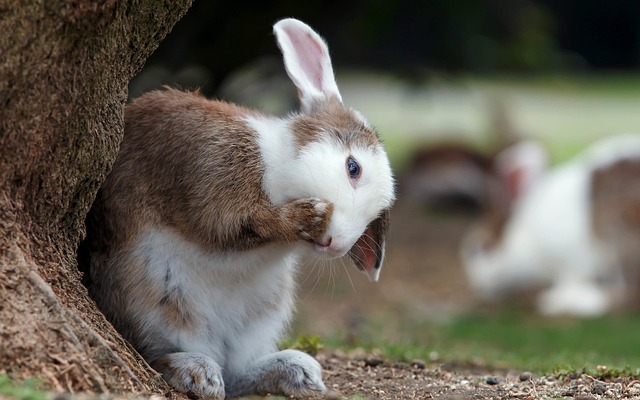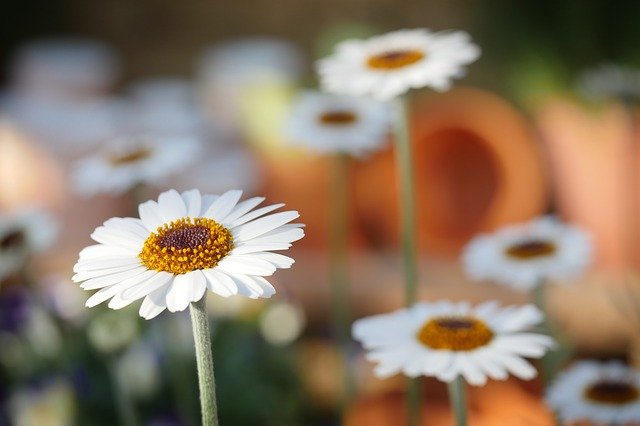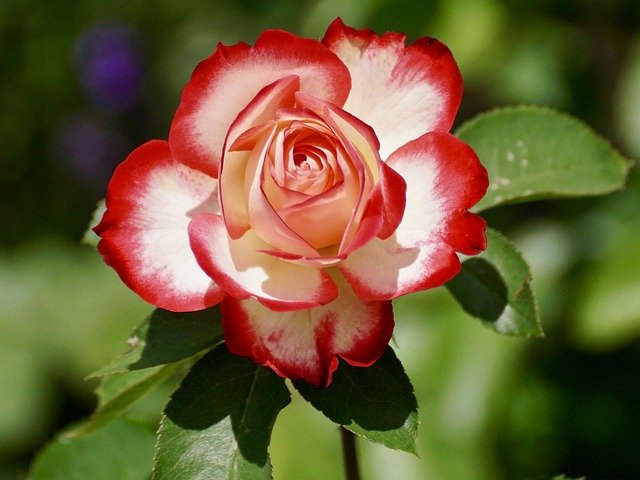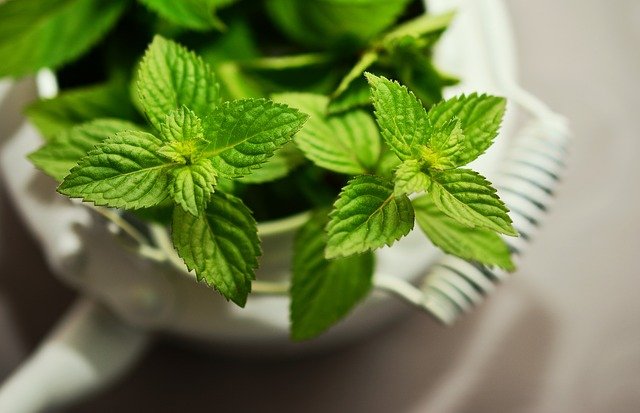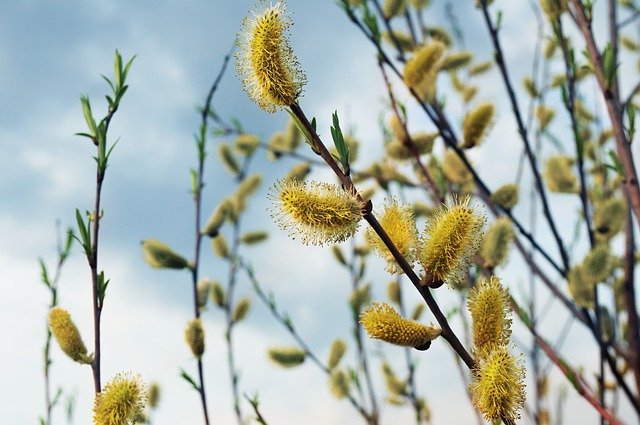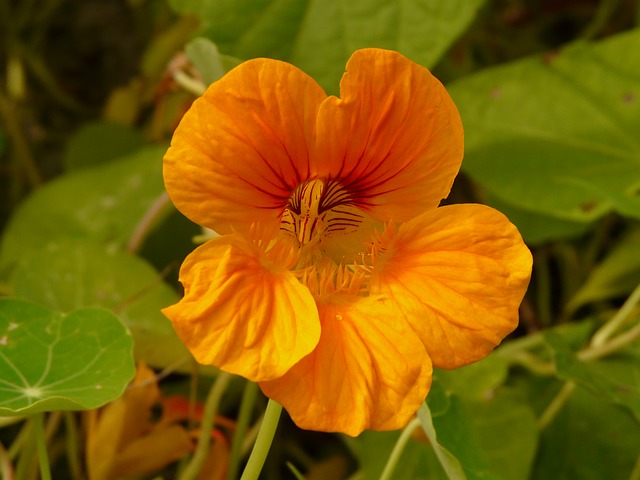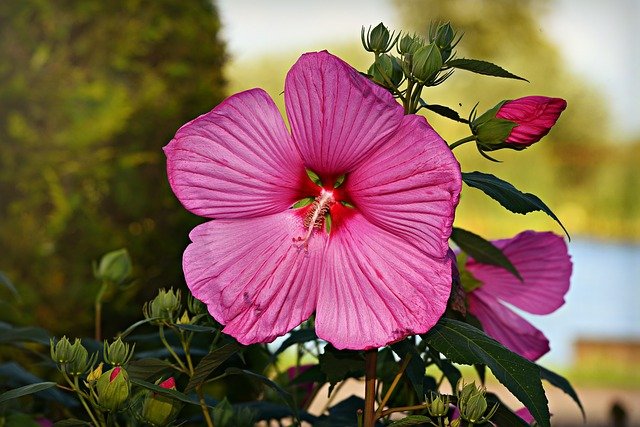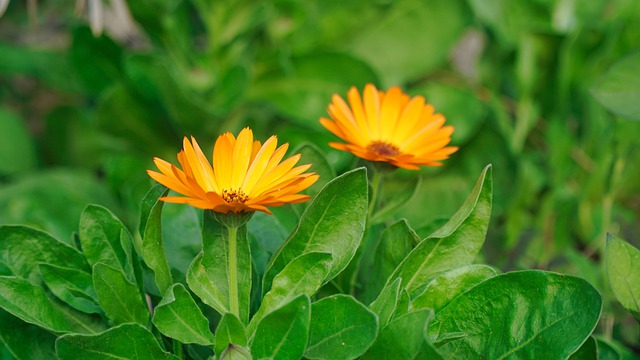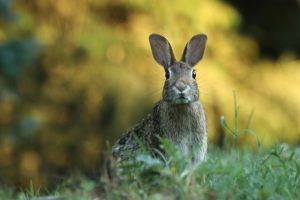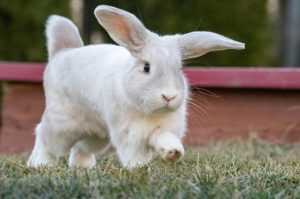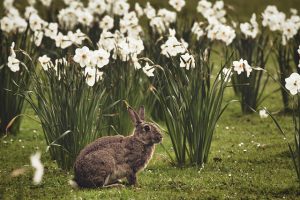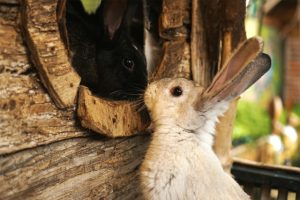Contents
Rabbits like most animals love to feast on anything they can get their teeth on. There is nothing rabbits love more than to nibble on plants. In fact, they could feast on nearly any plant, if left alone. That being said. It’s not always safe for rabbits to chew on any plant.
There are some plants that repel rabbits, and there are others that invite them to chew off the leaves for their pure pleasure. Whether you’re trying to grow plants in your home, or in the garden, you’ll want to be aware of plants that are safe so that you can help prevent them from digesting any harmful plants. To make things easier for you, we’ve created a list of 13 plants that are safe for rabbits to eat.
Plants That Are Safe for Rabbits to Eat
1. Daisies
When the Spring season comes around, one of the flowering plants that blossoms are Daisies. While Daisies make any garden look stunning, they are attractive to rabbits. Daisies pop up and populate in mass amounts.
They are considered to be non-toxic flower plants but are safe for rabbits to eat but in small portions. Rabbits can safely eat every part of this flowering plant, from the stem to the roots. And the best part, is these flower plants have the added benefit of protein. rabbits will thoroughly enjoy this treat!
2. Roses
Roses are very safe for rabbits to nibble on. They come in many colors and be eaten fresh or even dried. Rose petals contain some vitamin nutrition for rabbits.
It contains levels of Vitamin C, and it is about 95% water-based. While rose petals are a nutritious treat, we must be careful not to overfeed rabbits with them. They can give them diarrhea.
3. Sunflowers
Sunflowers are another type of flower that rabbits can eat as a whole: the stems, leaves, and even the seed. It would advise giving seeds in moderation.
This seed can interfere with their digestive tract and cause diarrhea. Since Sunflowers are one of the flowers that rabbits struggle to stay away from, this means that if planted in the garden, it will be challenging to keep rabbits away.
4. Dandelions
Dandelions are actually edible weed flowers for rabbits. Dandelions are weeds that grow every year on fields and oftentimes right on the front lawn. Instead of picking these, let your rabbit go out and gobble them up. The flower and stem are also edible for rabbits.
The leaves contain a rich source of vitamin A, which is a great contributor to a rabbit’s diet. Rabbits need protein, fiber, and vitamin, A, B & D. Add a stack of Dandelions to the rabbit’s meal, and not only will it be a delicious treat, but you can give without guilt.
5. Mints
Mints are a very edible and safe plant for rabbits to eat. If you own a rabbit, then you know that a healthy diet is essential to the longevity of the rabbit’s life. Mint, comes in several flavors.
To name a few: chocolate mint, peppermint, & spearmint. These all are called Genus Mentha! genus Mentha is the safe mints. There is another set of mints that would be considered unsafe for rabbits. They are called perilla mint.
Compare Perilla Mint to a Genus Mentha, and you will notice that the leaves look very similar to one another. They look similar but note that they are different. Pay close attention to the name of the mint before you offer it to your furry friend.
6. Bell flowers
Bell flowers are some of the most beautiful flowers. You can plant them in your garden or in a pot at home. Either way, they are sure to beautify your home. You will just have to work to keep your rabbit from consuming these beauties.
Bellflowers are also called campanula. These flowers are nutritious and very safe for rabbits to eat. And, like many of the other plants on this list, the bellflower plant can be consumed as a whole, even the root if the rabbit can get to them.
7. Willow
The willow leaves from willow trees are another completely safe and nutritious leaf for rabbits to chew on. They are actually a favorite treat for rabbits. And can often be a lot of fun for rabbits to sink their big teeth into.
One of the many asked questions is can rabbits eat the wood from the Willow tree? Truth is, the wood is perfectly safe for rabbits to gnaw on. In addition to the wood, they can also enjoy the other parts such as the leaves and flower blooms, called catkins.
8. Jasmine
Jasmine plants are known to be some of the most beautiful plants. They can beautify any home or garden. These plants are fragrant white and pink. If the plant is true jasmine it will be non-toxic for rabbits. The entire flower is edible; leaves, and stems.
Be careful, however, and look out for the Carolina Jasmine or yellow jasmine. These are toxic to rabbits. They nearly look like jasmine, but they are yellow flowers and are not considered to be related to jasmine plants.
9. Grass
Rabbits will eat fresh-cut grass right off the front lawn. It’s a great meal to graze on, given the grass is not treated with chemicals. Rabbits that live in the wild, eat grass as their predominant meal.
The grass is critical to rabbits’ health. They should have a lavished supply of this and be able to graze upon this for 6-8 hours per day. Rabbits have growing teeth. Grazing on grass is what helps chomp down their growing teeth.
10. Nasturtium
Nasturtiums are tasty flowers for rabbits to snack on. The whole plant is safe for the rabbit to consume, including flowers, leaves, stems, and even seeds Nasturtium are really beautiful flowers, that come in vibrant colors.
Nasturtiums are ideal because they cover some of the vegetables that are growing in a garden and contain minerals and other nutrients that help support a healthy diet. However, Nasturtium should not be relied on heavily. Perhaps feed these to your rabbit 1-2 times per week. They do not contain enough vitamins, and minerals to make up for their daily nutritional needs.
10. Hollyhock
Rabbits will venture, and look at different plants to find which one is filling and tasty. Hollyhocks are non-toxic so rabbits are not in danger of poisoning. However, they are safe to consume in a small portion, or else they mess up the rabbit’s digestive tract and cause digestive problems such as diarrhea.
11. Cotton
Have you ever noticed that Rabbits like to chew on your clothing? Chewing clothes is a normal habit for rabbits. Many owners say that have to keep their clothes away because rabbits are fond of them, and while sink their teeth into them.
For this reason, I included cotton on the list. If you find that your rabbit is gnawing at your clothing, no need to worry if it is safe for them. Clothing is safe. And while it is not a plant, it might as well be.
Likewise, if you have any cotton plants, know that they too are safe for your rabbit to chew on and eat. If you’re bothered or concerned about the idea of your rabbit chewing on your covers or shirt laying around your home, you can double-check the material and ensure they are made of natural fibers, like cotton. That might put your mind at ease.
12. Lavender
Lavender is one of the more beautiful plants that are safe for rabbits to eat. It has lilac, blue, and violet blooms. Lavender has been extracted to oil, as research suggests that lavender has the ability to relax humans, even rabbits, helping them to relax and calm down Rabbits will eat lavender either fresh or dried.
Though lavender is a safe plant to consume, rabbits don’t like to eat too much of it. Often times lavender can be the one flower that is left alone in a field.
Lavender does carry a rich and very strong scent that often turns them away. Besides, the plant is a bit prickly making it challenging to enjoy large amounts. But every once in a while, you’ll come across a rabbit who’s not picky and is happy to eat anything, including lavender.
13. Pot marigolds
Pot marigolds are last on our list like one of the safe plants for rabbits to eat. Pot marigolds are also known as English Marigolds. You can find them in the color orange or yellow. You can place these in a flower pot and beautify your home indoors or out on the balcony or you can plant them in your outdoors in your garden.
You must know that there are other types of marigold, that are considered to be toxic for rabbits. They are called Marsh marigolds and African marigolds. They are known to give rabbits side effects like skin irritation. While the side effects are minor, it would be best to keep your rabbit far from anything that is toxic.


